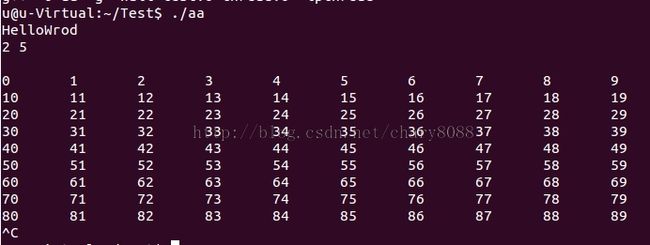boost库 bind/function的使用
Boost::Function 是对函数指针的对象化封装,在概念上与广义上的回调函数类似。相对于函数指针,function除了使用自由函数,还可以使用函数对象,甚至是类的成员函数,这个就很强大了哈
#include <boost/function.hpp>
#include <boost/bind.hpp>
#include <iostream>
using namespace std;
class TestA
{
public:
void method()
{
cout<<"TestA: method: no arguments"<<endl;
}
void method(int a, int b)
{
cout<<"TestA: method: with arguments"
<<"value of a is:"<<a
<<"value of b is "<<b <<endl;
}
};
void sum(int a, int b)
{
int sum = a + b;
cout<<"sum: "<<sum<<endl;
}
int main()
{
boost::function<void()> f;
TestA test;
f = boost::bind(&TestA::method, &test);
f();
f = boost::bind(&TestA::method, &test, 1, 2);
f();
f = boost::bind(&sum, 1, 2);
f();
}
2. 应用:Thread封装
在实现自定义的线程类时,曾经这么干过:定义虚函数run(),用户自定义的CustomThread::Thread后,自己实现run()函数就OK了。 当时觉得这么做也不错。
现在有了boost::function/boost::bind我们可以这么干:
定义一个线程类:
.h文件
#include <pthread.h>
#include <string>
#include <boost/function.hpp>
#include <boost/bind.hpp>
using namespace std;
class Thread
{
typedef boost::function<void()> ThreadFun;
public:
Thread(const ThreadFun& threadFun,const string& threadName = string());
pid_t getThreadId();
string getThreadName();
int start();
private:
static void* startThread(void* thread);
private:
pthread_t m_thread; //线程句柄
pid_t m_tid; //线程ID
string m_strThreadName; //线程名称
bool m_bStarted; //线程是否启动
ThreadFun m_func; //线程处理函数
};
.cpp
#include "thread.h"
Thread::Thread(const Thread::ThreadFun& threadFun, const string& threadName):
m_func(threadFun), m_strThreadName(threadName)
{
}
int Thread::start()
{
m_tid = pthread_create(&m_thread, NULL, &startThread, this);
return 0;
}
void* Thread::startThread(void* obj)
{
Thread* thread = static_cast<Thread*>(obj);
thread->m_func();
return NULL;
}
pid_t Thread::getThreadId()
{
return m_tid;
};
string Thread::getThreadName()
{
return m_strThreadName;
}
void ThreadProcess()
{
int count = 100;
for (int i = 0; i < count; i++)
{
if (i % 10 == 0)
cout<<"\n";
cout<<i<<"\t";
}
}
int main()
{
boost::function<void()> f;
f = boost::bind(&ThreadProcess);
Thread thread(f, "ThreadTest");
thread.start();
sleep(1000*1000);
return 0;
}
